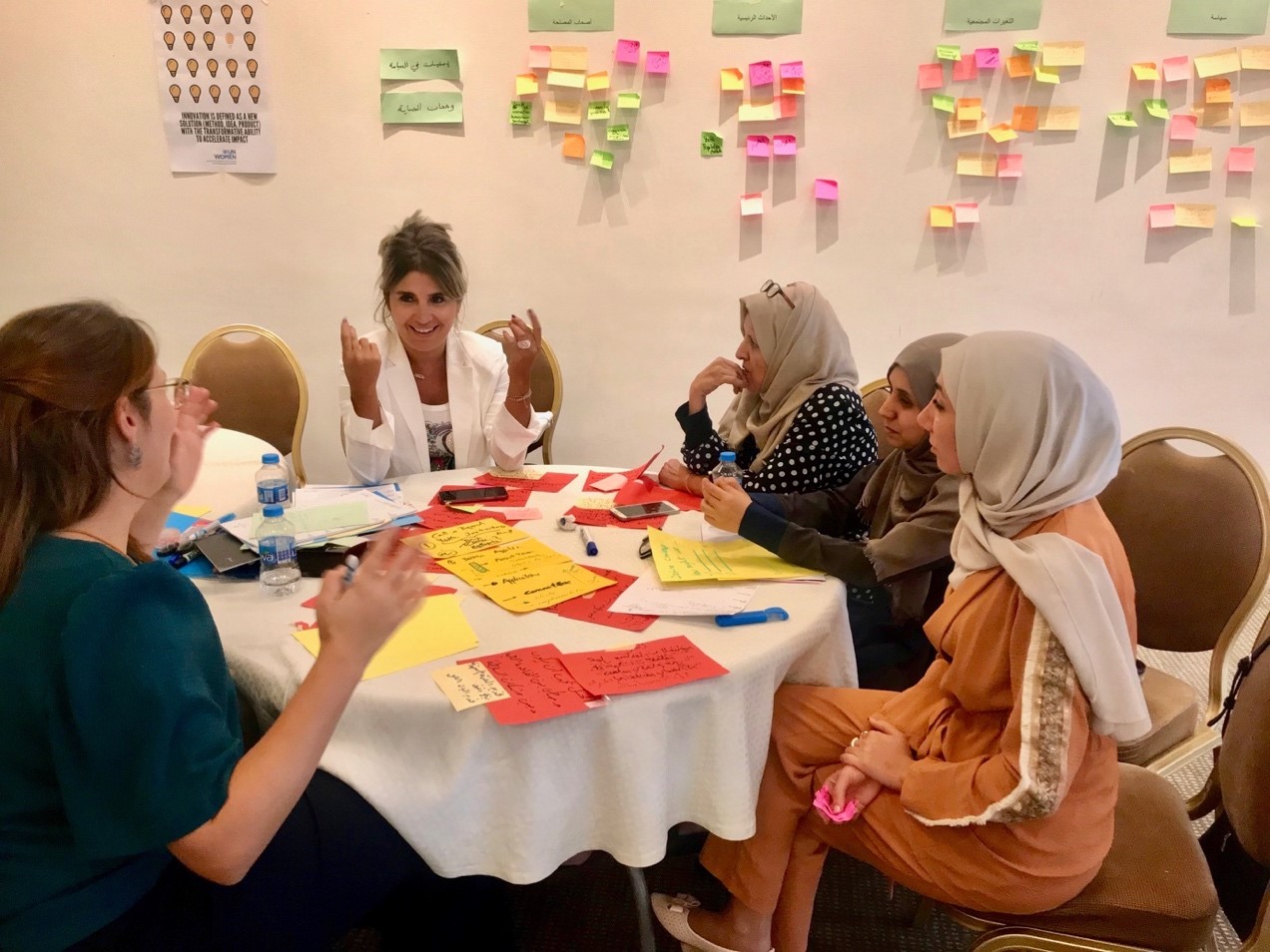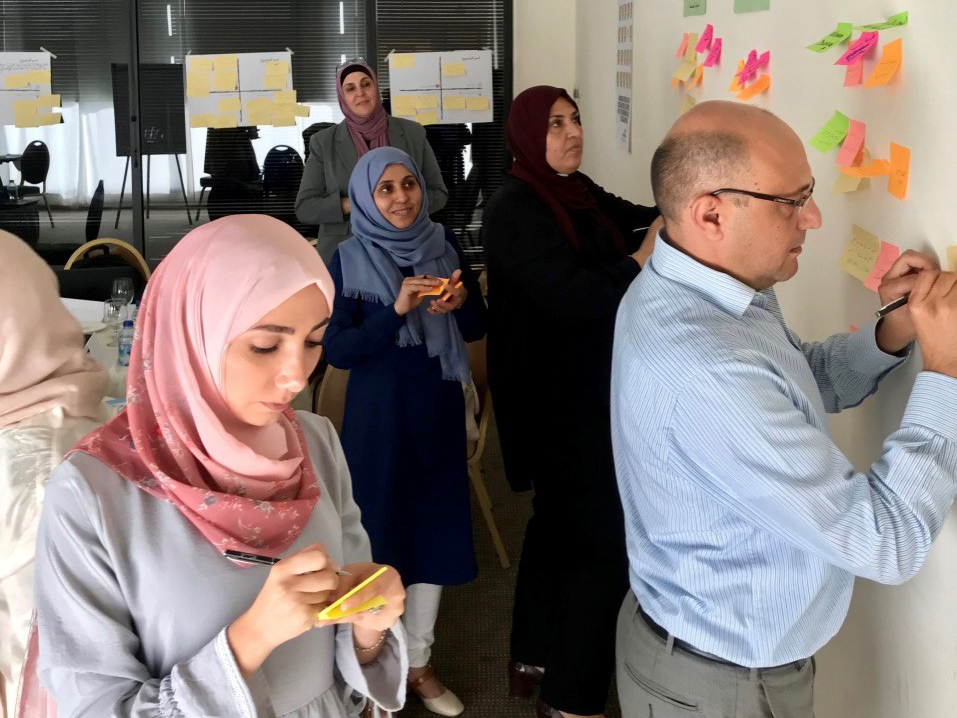Applying Social Innovation for Women’s Rights in the Arab States
Date:

Women-led organizations from Algeria, Lebanon, Palestine and Yemen supported by UN Women’s Fund for Gender Equality (FGE), gathered in September at a workshop in Amman, Jordan, to challenge their assumptions, re-think their approaches, and experiment with new strategies in programming for gender equality. The workshop aimed to identify and develop new solutions to women’s rights challenges specific to the development context and priorities of the Arab States region, through the application of social innovation approaches.
How can livelihood programmes implemented in transition economies support rural women’s passage from small-scale producers to profitable entrepreneurs? How can social protection initiatives rolled out in occupied territories advocate for women’s labour rights in both formal and informal sectors? How can political participation interventions operating in armed conflict contexts include women as active participants in peacebuilding talks? These were only a few of the many challenges identified by FGE grantees as recurrent barriers to achieving larger-scale and longer-lasting impact for women and girls in the Arab States region.
Organized as part of a broader FGE upscaling initiative, the workshop sought to utilize social innovation methodologies to the particular needs of women-led organizations working in weak operational settings. Specifically, the workshop strengthened grantees’ institutional capacities by training them in topics such as strategic partnerships and alliances, and human-centered management. The convening also provided them with the innovation tools required to shift their organizations from traditional structures to distributed networks or other new forms of engagement.
Youth Leadership Development Foundation from Yemen, for example, struggled sensitizing community leaders and members to the advantages of including women in politics and conflict negotiation. Through co-creative exercises undertaken with other grantees from the workshop, the organization resolved to employ a bottom-up engagement strategy, whereby its sensitization campaigns will be led by young allies rather than traditional leaders.
A targeted “call for proposals” will incite youth from all walks of life to design an innovative, far-reaching public awareness campaign combining social media and digital art, to trigger a debate in support of increasing women and youth’s public and political participation.

“The best aspect of this training has been joining forces with other Arab women leaders to tackle and solve local and regional gender equality challenges on our own terms”, shared Houda Farfour, Lebanon Family Planning Association Project Coordinator. “Through innovation tools such as systems thinking and theory of change, we realized we need to simplify bureaucratic processes in every branch of our organization – especially in human resources and operations”, said Shahira Afanah, Mother’s School Society Programme Manager.
Speaking at the workshop, Rana El-Houjeiri, UN Women FGE Arab States Portfolio Manager expressed, “Rather than jumping to a business-as-usual programme design, grantees have used this space to cultivate a deeper understanding of the women they work for. A key lesson is for civil society to use its proximity to them as an advantage, ensuring that innovations respond precisely to local needs and are compatible with local behavior, culture and environment.”
This workshop was part of a series of South-South exchanges and social innovation initiatives led by the Fund’s Arab States Portfolio. Such exchanges aimed to catalyze change at scale linked to the region’s context-driven realities, capacities and opportunities.